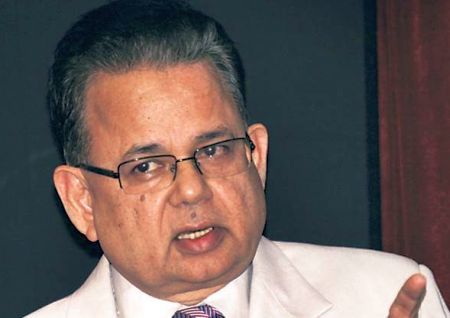 India has re-nominated Justice Dalveer Bhandari as its candidate for another term as judge at the International Court of Justice, the principal judicial organ of the UN.
India has re-nominated Justice Dalveer Bhandari as its candidate for another term as judge at the International Court of Justice, the principal judicial organ of the UN.
Bhandari, 69, was elected in April 2012 during simultaneous balloting in both the General Assembly and the Security Council to a seat on the International Court of Justice, which is also known as the World Court and is based in The Hague in the Netherlands. His current term runs through February 2018.
India filed Bhandari’s re-nomination on Monday with UN Secretary General Antonio Guterres, well ahead of the July 3 deadline. The ICJ elections will be held in November and if elected, he will serve a term of nine years.
During his term at the ICJ, Bhandari has been engaged actively in the work of the Court and has delivered individual opinions in 11 cases covering a broad spectrum of subjects such as maritime disputes, whaling in Antarctica, crime of genocide, delimitation of continental shelf, nuclear disarmament, financing of terrorism and violation of sovereign rights.
Before joining the ICJ, Bhandari was a judge in the higher judiciary in India for more than 20 years. He had served as a senior judge in the Supreme Court of India.
The ICJ is composed of 15 judges elected to nine-year terms by the United Nations General Assembly and the Security Council that vote simultaneously but separately. In order to be elected, a candidate must receive an absolute majority of the votes in both bodies.
According to ICJ’s website, judges must be elected from among persons of high moral character, who possess the qualifications required in their respective countries for appointment to the highest judicial offices, or are jurisconsults of recognised competence in international law.
Judges are chosen on the basis of their qualifications, not their nationality, but no two judges can be from the same nationality. Effort is also taken to ensure that the principal legal systems of the world are reflected in the composition of the court.
Established in 1945, the ICJ settles legal disputes between states and gives advisory opinions on legal questions that have been referred to it by other authorized UN organs. The Court is open to all parties to its statute, which automatically includes all UN Member States.










